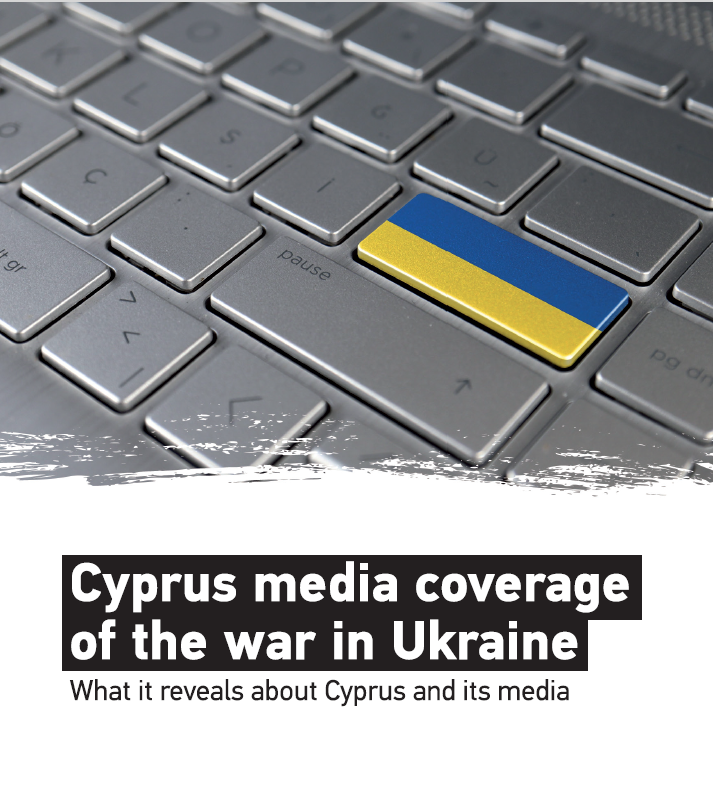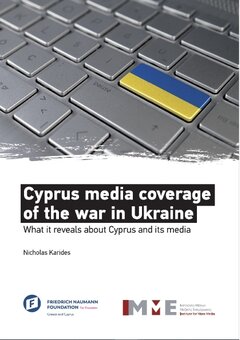MEDIA
New comprehensive study reveals Cyprus media’s complex coverage of the Russia-Ukraine war

With the support of FNF Greece and Cyprus
As a steadfast advocate for liberal democracy and the freedom of media, the Friedrich Naumann Foundation for Freedom Greece and Cyprus is proud to have supported a pivotal study conducted by the Institute for Mass Media (IMME), published at the end of 2023. This extensive research offers an insightful look into the Cypriot media's coverage of the significant and tumultuous events surrounding Russia's 2022 invasion of Ukraine.
In a world where the media's influence is both potent and far-reaching, understanding its role, especially in times of conflict, is crucial. The study, spearheaded by IMME, delved into the nuanced dynamics of Cyprus’s media landscape during a period of intense global focus – the war in Ukraine. The goal was to unravel how Cyprus's unique socio-political context influenced media reporting and, in turn, public perception during this crisis.
Key findings: A multifaceted media landscape
- The study exposes the vulnerability of Cyprus's media landscape.
- The lack of regulation in digital media not only raises questions about ownership and transparency but also opens the door to subtle manipulation and propaganda, undermining the very fabric of editorial independence.
- Historically, Cypriot media has shown a tendency to align with political and commercial interests, which has significantly influenced its role as a watchdog. This tendency was particularly evident in the coverage of the Ukraine crisis, where media often prioritized political and commercial allegiances over impartial reporting.
- In the initial stages of the Ukraine conflict, Cypriot media demonstrated a noticeable reluctance to portray Russia unequivocally as the aggressor. This hesitance is deeply rooted in Cyprus’s historical and economic ties with Russia and the complex Cyprus-Turkey geopolitical state.
- As the conflict progressed, a remarkable evolution in media coverage emerged. Cypriot media began to critically assess Russia's role and the broader geopolitical and economic implications of the war, moving towards a more balanced and critical analysis.
- The study also shed light on the transformative impact of social media on traditional media channels. A significant shift in public engagement with news was observed, with a growing tendency to consume unmediated and often biased information through social platforms. This trend poses a challenge to conventional media's role as information gatekeepers.
The Project Coordinator of FNF Greece and Cyprus, Alona Tatarova, commented on the broader implications of the findings:
This research is not just a mirror held up to the Cypriot media landscape; it's a clarion call. The findings highlight how internal and external entities can undermine media freedom, posing a grave threat to media pluralism, unbiased reporting, informed public discourse, and in the very end liberal democracy itself. The ripple effects of such influences are far-reaching, eroding the very pillars of a free society. For media professionals, policy-makers, and educators, and advocates of liberal democracy, within and beyond Cyprus, this study is a must read.

